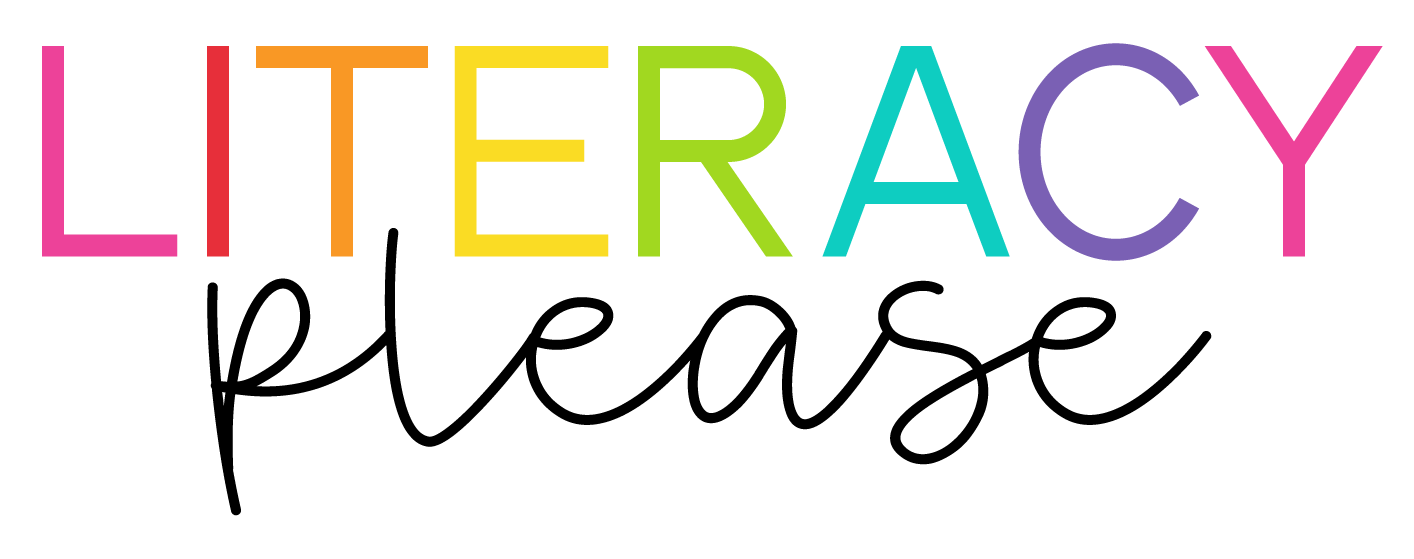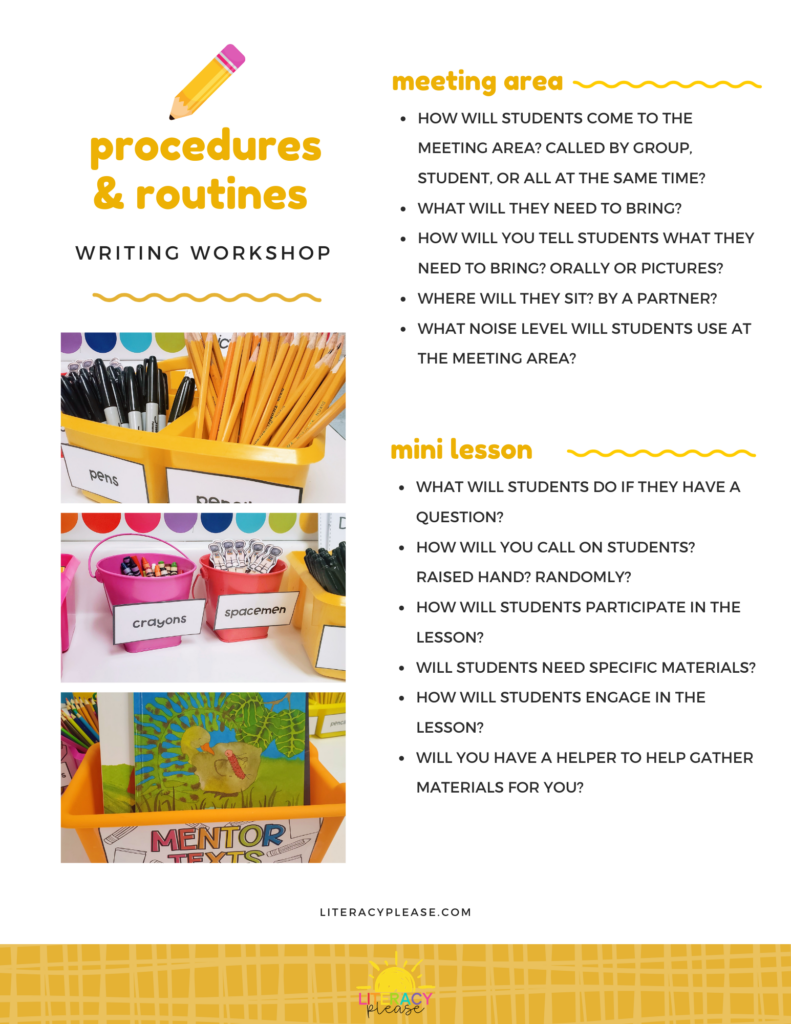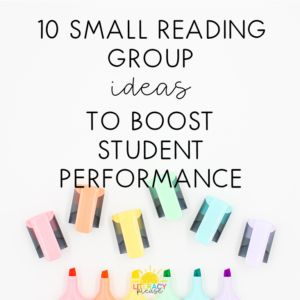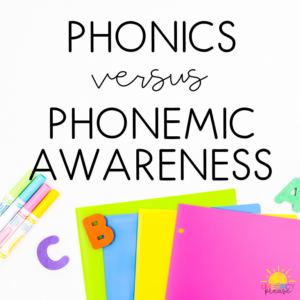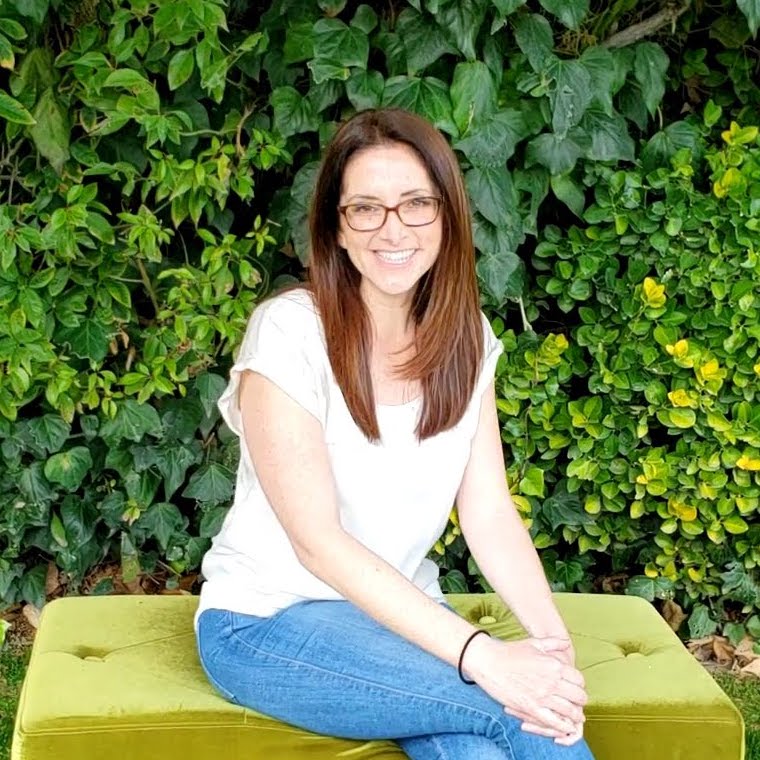Remember that time you weren’t prepared with a procedure for some simple activity in your classroom and the kids went crazy? Maybe that’s an exaggeration, but whatever it is you were doing probably didn’t go as planned. I’ve been teaching for-ev-er and I still do this. I did it today. Anyhow, we all know that being prepared for as much as we can, will only be beneficial, which is why it’s important to have procedures and routines for writing workshop planned and ready to go.
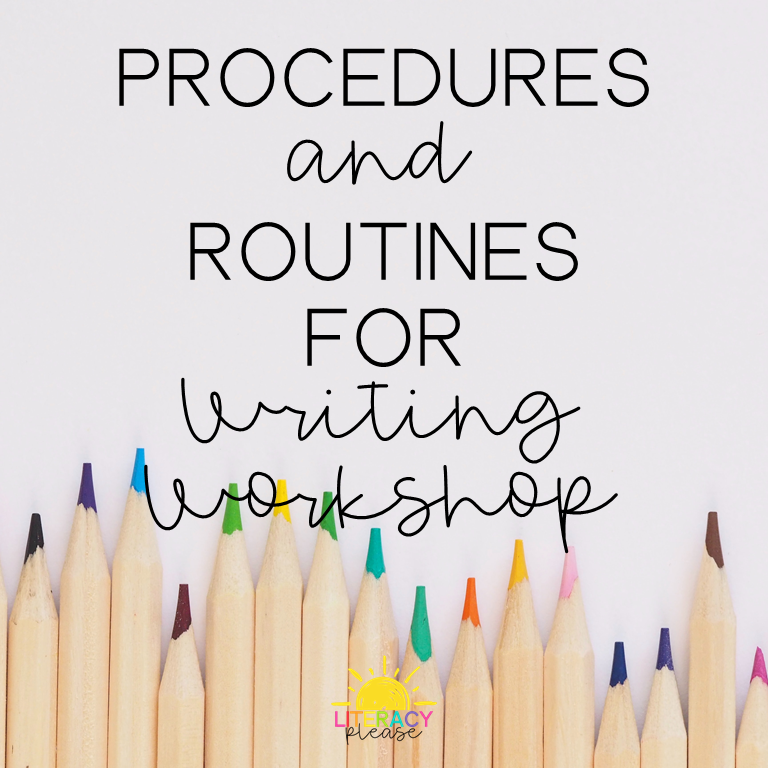
Getting Ready
Getting ready for the mini lesson sets the tone for the day’s writing workshop. How kids prepare themselves for this time will give you a glimpse into how they will interact during writing workshop. That’s why it’s important to make sure students understand the procedures for the start of writing workshop.
Writing workshop is a consistent routine performed each day (or on particular days) at the same time. It is predictable and something kids look forward to. It involves a mini lesson, independent writing, small groups, conferring, share, and clean up. Implemented daily, students will begin to follow the routine perfectly since it has been practiced so often. You can read more about writing workshop if you’re just getting started in this post.
The procedures of writing workshop are the details that need to be worked out by you, the teacher. What works in one classroom might not work in another. But having a starting off point is definitely helpful. Under each section is a list of questions to ask yourself about each component of writing workshop. Consider whether you need a particular procedure or routine for your writing workshop and have a plan of action.
Procedures for the Meeting Area
Each day for writing workshop the routine is to come together at the meeting area. In some classrooms, students bring their writing or writing folders with them. Some teachers have students sit with their writing partner or have assigned seating. Other times, students just find the first spot available. Consider the following:
- How will students come to the meeting area? Called by group, student, or all at the same time?
- What will they need to bring?
- How will you tell students what they need to bring? Orally or pictures?
- Where will they sit? By a partner?
- What noise level will students use at the meeting area?
Mini Lesson
Students will expect to learn something for writing workshop. It will be a routine 10-15 minute lesson that will become familiar to them. During your mini lesson, you may have students engage with signals (e.g. thumbs up, thumbs down) or maybe write something on a whiteboard. This is all up to you and your teaching style. Most mini lessons included having students try out a strategy with you before going off on their own. How will they practice? Consider the following:
- What will students do if they have a question?
- How will you call on students? Raised hand? Randomly?
- How will students participate in the lesson?
- Will students need specific materials?
- How will students engage in the lesson?
- Will you have a helper to help gather materials for you?
Independent Writing
This is the largest chunk of your writing workshop. It is especially important to have procedures and routines in place during this portion of writing workshop. The independent writing time is valuable and you won’t want any of it wasted on students not knowing what to do. Consider the following:
- What will students do right after leaving the meeting area?
- How will they be excused?
- Will they get to choose where they sit?
- How do they choose a writing spot?
- Is there a limit to the number of students at one spot?
- How will they interact with their writing partners?
- What will they do if they need materials?
- Is there a limit to the number of writing materials they can get?
- Do students get to keep materials in their desks or do they need to be returned?
- Will you need to review how to care for the materials?
- Will you set a timer?
Small Groups/Conferring
Small group and conferring time takes place during independent writing time and is also quite valuable. During this time you will be meeting with small groups, partners, and/or one on one with students to check in on their writing and to provided. You’ll want to make sure that you’re not disrupted during this time. Consider the following:
- Where will you meet?
- What will students bring?
- Will you have students make goals and store them somewhere?
- What should they do as soon as they sit down with you?
- What should students do if you need to walk away for a moment?
- How will independent writing students communicate with you if they need something?
- Will you take notes for yourself during this time and where will you store them?
Share
The share is a short, but important part of writing workshop and you’ll want to make the most of it. Before beginning the share, think of what you’d like students to practice in their writing and keep an eye out for that during independent writing. Then choose 2-3 students you’d like to share. Let them know ahead of time so they can practice reading their piece before presenting. Consider the following:
- How will you decide who shares? Do the students understand this?
- Before sharing their work, what will the students do?
- How will other students give feedback to their classmates?
- Will students share from their seat, in front of the class, or their choice?
- What should the other students be doing while another student is sharing?
- If students are sharing with a partner, who will share first?
- For partnerships, how are the students sitting? Side by side? At their desks?
- How will partnerships show they are listening to one another?
- What should students do after a classmate shares?
Procedures and Routines for Clean Up
Clean up can look different in each classroom. Some students store their work in a folder. Some teachers collect the writing. Whatever your style is, I’m sure unorganized writing materials isn’t your style. Therefore, taking time to teach students how to clean up is a must. Here I have classroom organization ideas for writing workshop that you’ll find helpful. Consider the following:
- Where does finished writing go?
- Where does work that is still being worked on go?
- If students are using folders, how do you make sure the folders are organized?
- Who is responsible for making sure the writing materials are put away nicely?
- Do you need to remind students to listen for a “click” when using pens and markers?
- Will you have a helper sharpen pencils?
- Does each student or group have their own writing materials? Does the whole class share?
Now that you’re ready to get started, download the procedures and routines list here.
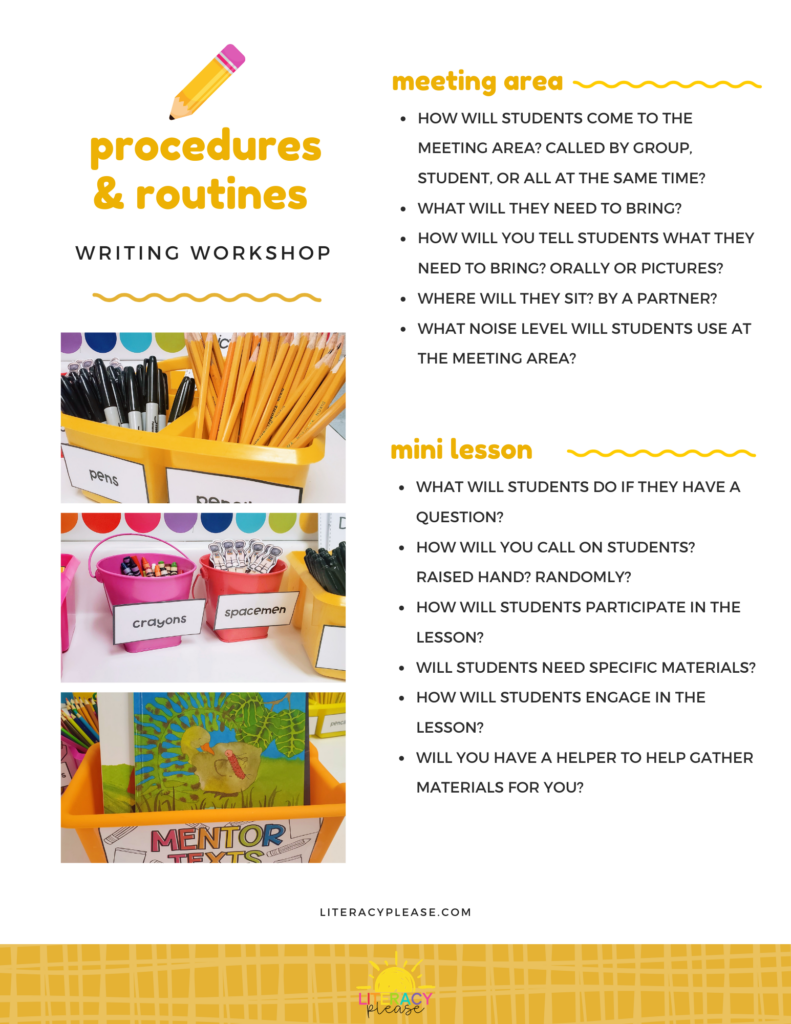
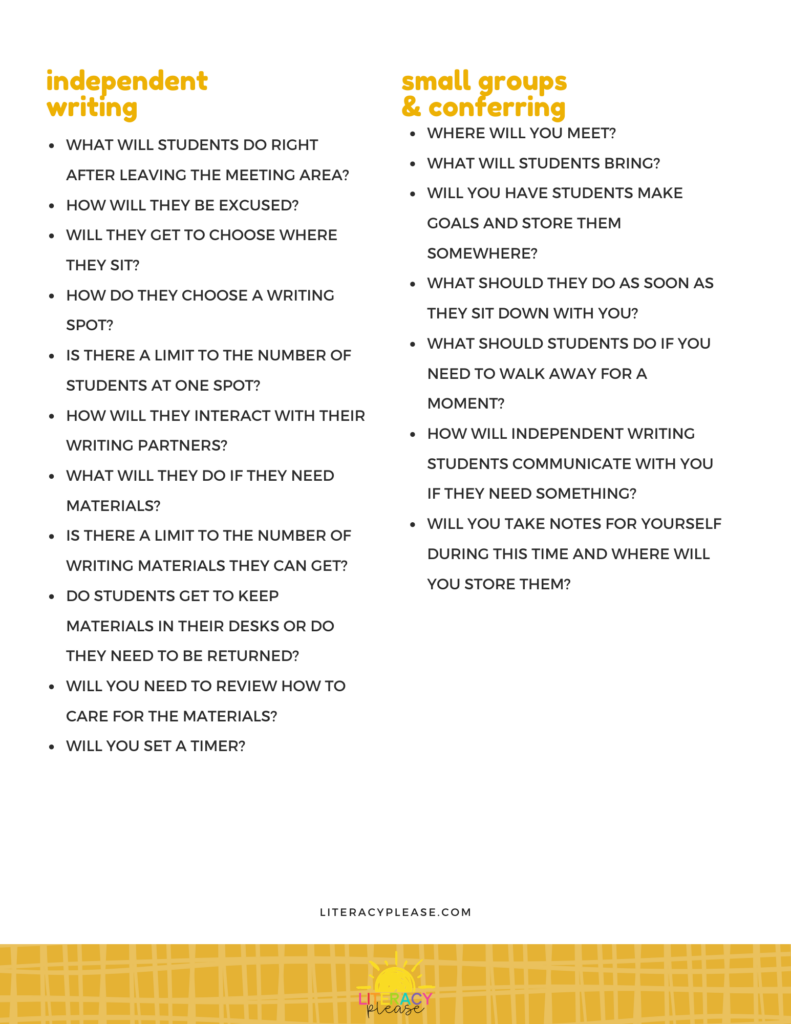
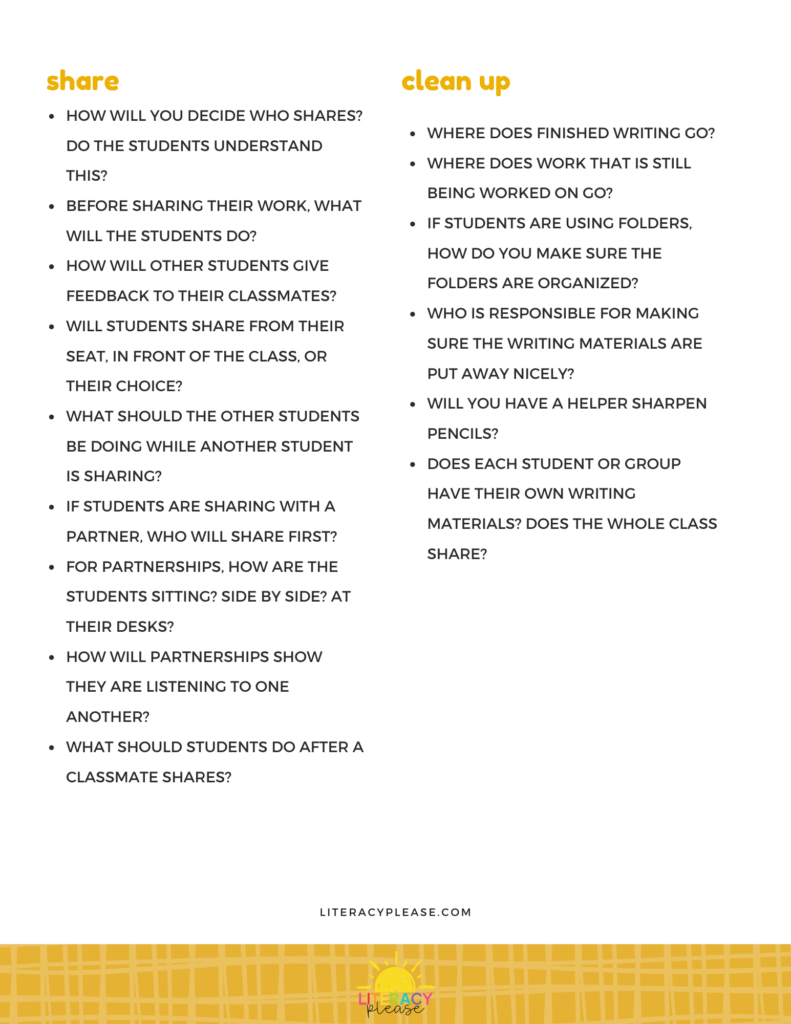
Procedures and routines are a must in any classroom. It’s one of those things that can make or break your day and students thrive when there is structure in a classroom. There is plenty to consider when deciding on your procedures and routines. Don’t worry if you don’t get it right the first, second, or third time. You probably won’t and that’s OK. Like anything in teaching, the more you try, the better you’ll get.
